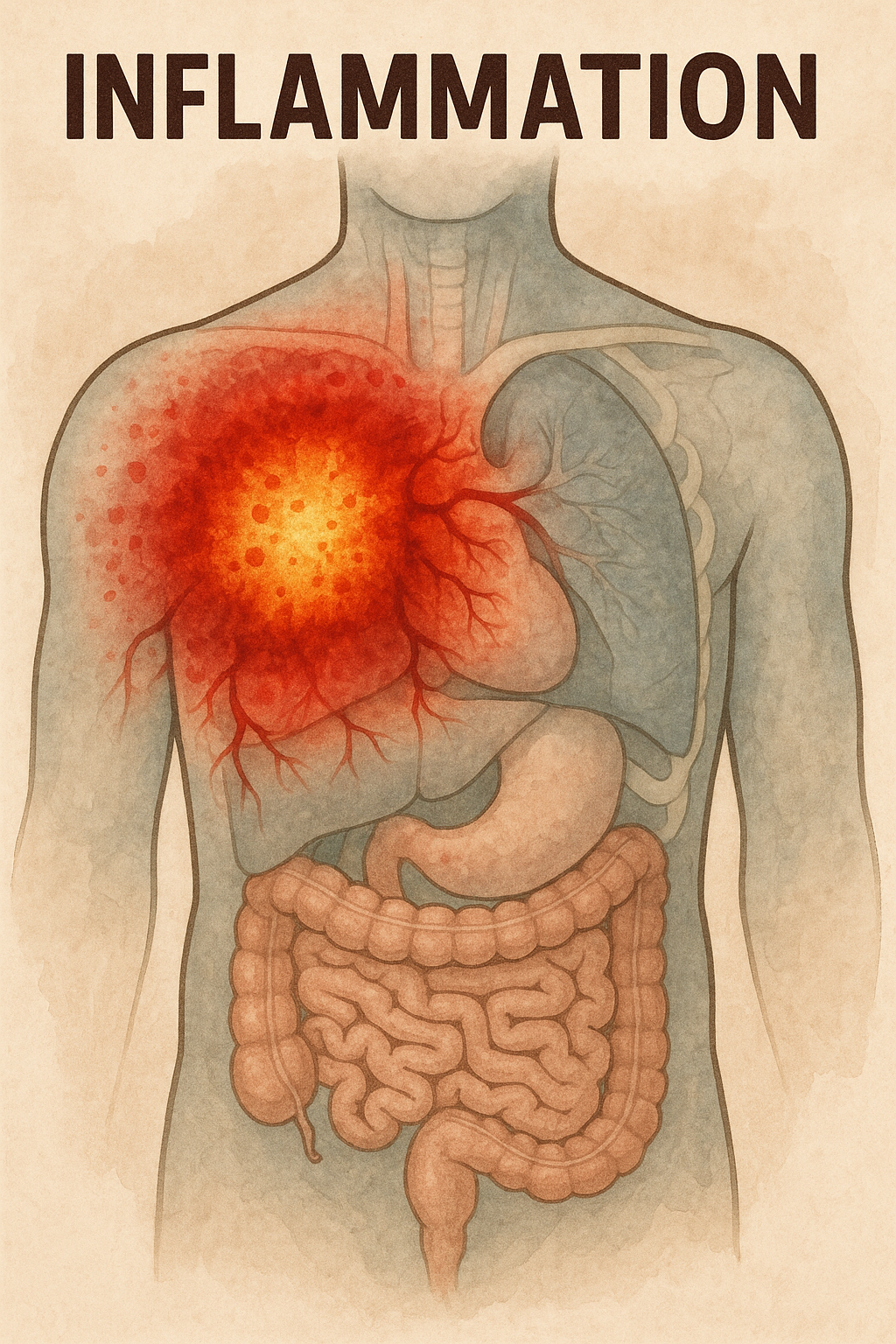How Inflammation Impacts the Body

When we hear the word inflammation, many of us think of swelling, redness, or pain after an injury. That’s one part of the story, but inflammation is far more complex—and it can affect nearly every system in the body. At Sheen Vein (Aesthetics and Functional Medicine) in St. Louis, we often explain to patients that inflammation can be both a friend and a foe.
Let’s take a closer look at how inflammation works, why it sometimes turns harmful, and how a functional medicine approach can help bring it back into balance.
The Good Side of Inflammation
Inflammation is the body’s natural defense mechanism. When you cut your finger, sprain your ankle, or fight off a cold, your immune system triggers inflammation to help you heal. White blood cells, antibodies, and chemical messengers rush to the site of injury or infection, increasing blood flow and activating repair.
This acute inflammation is short-lived, lasting hours to days. It protects you and helps restore normal function. Without it, wounds would not heal, and infections would overwhelm the body.
When Inflammation Becomes Chronic
Problems arise when inflammation doesn’t turn off. Instead of resolving after the threat is gone, the immune system stays in overdrive. This state of chronic inflammation quietly damages tissues and can contribute to a wide range of health problems.
Common triggers of chronic inflammation include:
- Poor diet high in processed foods, sugar, and unhealthy fats
- Chronic stress
- Lack of sleep
- Environmental toxins
- Gut dysbiosis (imbalanced gut bacteria)
- Ongoing infections or unresolved injuries
Over time, chronic inflammation can be like a slow-burning fire that weakens the body from the inside out.
How Inflammation Impacts Different Systems
1. Joints and Muscles
Chronic inflammation can attack joints, leading to stiffness, swelling, and pain. This is seen in conditions like rheumatoid arthritis and osteoarthritis. Even low-grade inflammation can worsen muscle recovery and contribute to chronic pain syndromes.
2. Cardiovascular System
Inflammation plays a key role in heart disease. It damages the lining of arteries, making it easier for cholesterol plaques to form. These plaques can rupture, leading to heart attacks or strokes.
3. Digestive Tract
In the gut, inflammation can cause bloating, abdominal pain, diarrhea, or constipation. Conditions such as Crohn’s disease, ulcerative colitis, and even irritable bowel syndrome (IBS) often involve an inflammatory component.
4. Hormones and Metabolism
Chronic inflammation interferes with insulin signaling, contributing to insulin resistance and type 2 diabetes. It also disrupts thyroid function and can play a role in weight gain, fatigue, and difficulty losing weight.
5. Brain and Nervous System
Inflammation in the brain is linked to “brain fog,” mood disorders, depression, and neurodegenerative diseases like Alzheimer’s and Parkinson’s. Patients often describe feeling mentally slower or less sharp when inflammation is high.
6. Skin
Skin conditions like eczema, psoriasis, acne, and premature aging are often driven by inflammation. Many patients are surprised to learn that what shows up on the skin often reflects internal inflammation.
Signs You May Have Chronic Inflammation
Some people experience obvious symptoms like joint pain or gut issues. Others have more subtle signs, such as:
- Fatigue
- Brain fog
- Low mood or anxiety
- Weight gain or difficulty losing weight
- Frequent infections
- Skin flare-ups
Because inflammation can impact so many areas, it often goes unrecognized as the root cause.
A Functional Medicine Approach to Inflammation
At Sheen Vein (Aesthetics and Functional Medicine), we look for the underlying reasons why inflammation is occurring rather than just treating symptoms. Some strategies include:
- Nutritional changes: Emphasizing whole foods, antioxidants, omega-3s, and removing inflammatory triggers such as processed sugar and refined oils.
- Gut health support: Using probiotics, prebiotics, and targeted therapies to restore balance in the microbiome.
- Stress management: Chronic stress fuels inflammation, so practices like meditation, breathwork, or gentle exercise are key.
- Sleep optimization: Restorative sleep is one of the body’s best anti-inflammatory tools.
- Advanced therapies: Options such as peptides, red light therapy with PEMF, and personalized supplement protocols may help regulate inflammation at the cellular level.
The Bottom Line
Inflammation is essential for healing, but when it becomes chronic, it can silently damage tissues and contribute to many modern health conditions. From heart disease to brain fog, from skin flare-ups to joint pain, inflammation plays a role.
The good news is that by identifying root causes and making targeted changes, it’s possible to calm inflammation and restore balance.
If you’re struggling with fatigue, pain, digestive issues, or unexplained symptoms, it may be time to take a deeper look. At Sheen Vein (Aesthetics and Functional Medicine) in St. Louis, we specialize in uncovering and addressing the root causes of inflammation to help patients feel and function at their best.
Learn more about our functional medicine approach or schedule your consultation today.